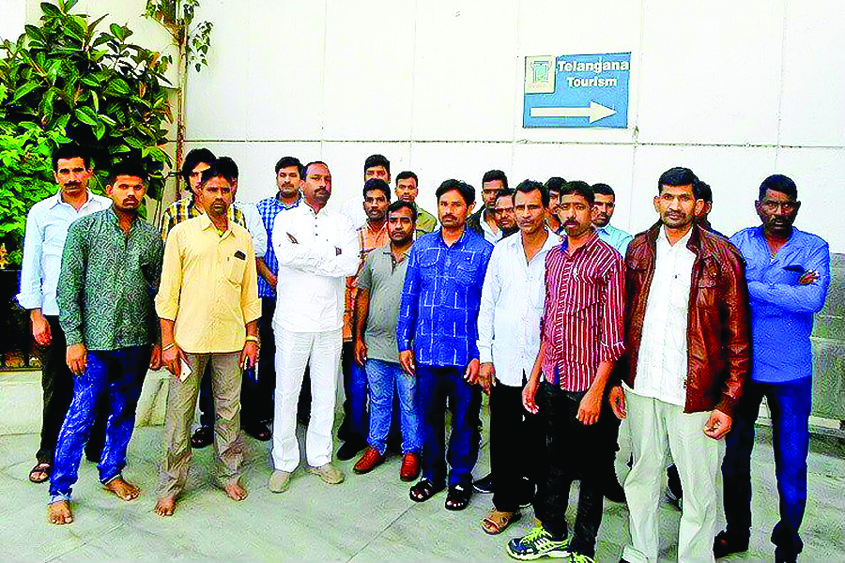“Gunfire, no food, no water. Iraq is the most dangerous place. I will never go back,” said Sathish in broken English when asked about his experience in Erbil, Iraq.
Sathish is among the 33 migrant workers who were rescued from Iraq earlier this week by efforts made by the Ministry of External Affairs (MEA) and the NRI cell of Telangana. Most of these men belonged to Telangana. None of the people rescued were highly qualified. Most of them could hardly speak any language other than Telugu.
These men were duped by employment agents who promised them attractive jobs in Iraq in exchange for a few thousand to Rs 1 lakh remuneration. Only after they reached Iraq did they realise that there were no employers waiting for them. Since their visa was valid only for 15 days, they were left to fend for themselves.
Kalyan, another person who was rescued, said, “I am safe and alive. That is all that matters now. I went there to improve my future prospects, but we did not even have food to eat. It was very dangerous and I was scared enough to feel that I might die. All we could arrange to eat was bread. On some days, we could not buy bread as we had no money.”
Sathish told The Sunday Guardian, “I could hear the sound of gunfire. I did not know there was a war going on there. We had to sleep on empty stomach in hiding. We faced a lot of challenges, but we finally made it back home.”
Sources said that some of the people rescued were exposed to conflict areas and had to live in confinement. But who captured them or where they were detained could not be known. Not all of them were taken to areas where the on-going civil war has larger effects. But almost all of them had no means of livelihood and had to rely on odd-jobs to arrange for their food and drinking water.
Some of the people rescued were exposed to conflict areas and had to live in confinement. But who captured them or where they were detained could not be known.
Not all of them were taken to areas where the on-going civil war has larger effects. But almost all of them had no means of livelihood and had to rely on odd-jobs to arrange for food and drinking water.
E. Chitti Babu, section officer at the NRI cell, Telangana, said, “Some of them were stranded for over two years. The workers had been asking for help for the past five months. The rescue was initiated once the Indian authorities intervened after Telangana minister K.T. Rama Rao and External Affairs Minister Sushma Swaraj directed the Indian embassy to look into the matter.”
A survivor said, “We did any work we could find to collect enough money to buy food. We sold empty bottles to earn money and looked through garbage for edible leftovers.”
Earlier in 2015, 11 nurses from Kerala were rescued from Kirkuk in northern Iraq.
In 2014, the Iraqi insurgency escalated into a civil war with the conquest of Mosul and Tikrit and major areas in northern Iraq by the Islamic State of Iraq and the Levant (ISIL, also known as ISIS). The most recent update on the ongoing conflict comprises the battle of Mosul that started in 2016 and has continued through February and March between Iraqi government forces with allied militias, the Kurdistan Regional Government, and international forces to retake the city of Mosul from the ISIL.
Mosul is only 95km from Erbil, capital of the autonomous state of Kurdistan, which also serves as the defacto capital for all western political and military movements since the actual capital, Baghdad, is currently unstable and unsafe. An estimated 400,000 civilians are still trapped in the conflict areas. However, with strong checkpoints, Erbil is largely considered safe.

